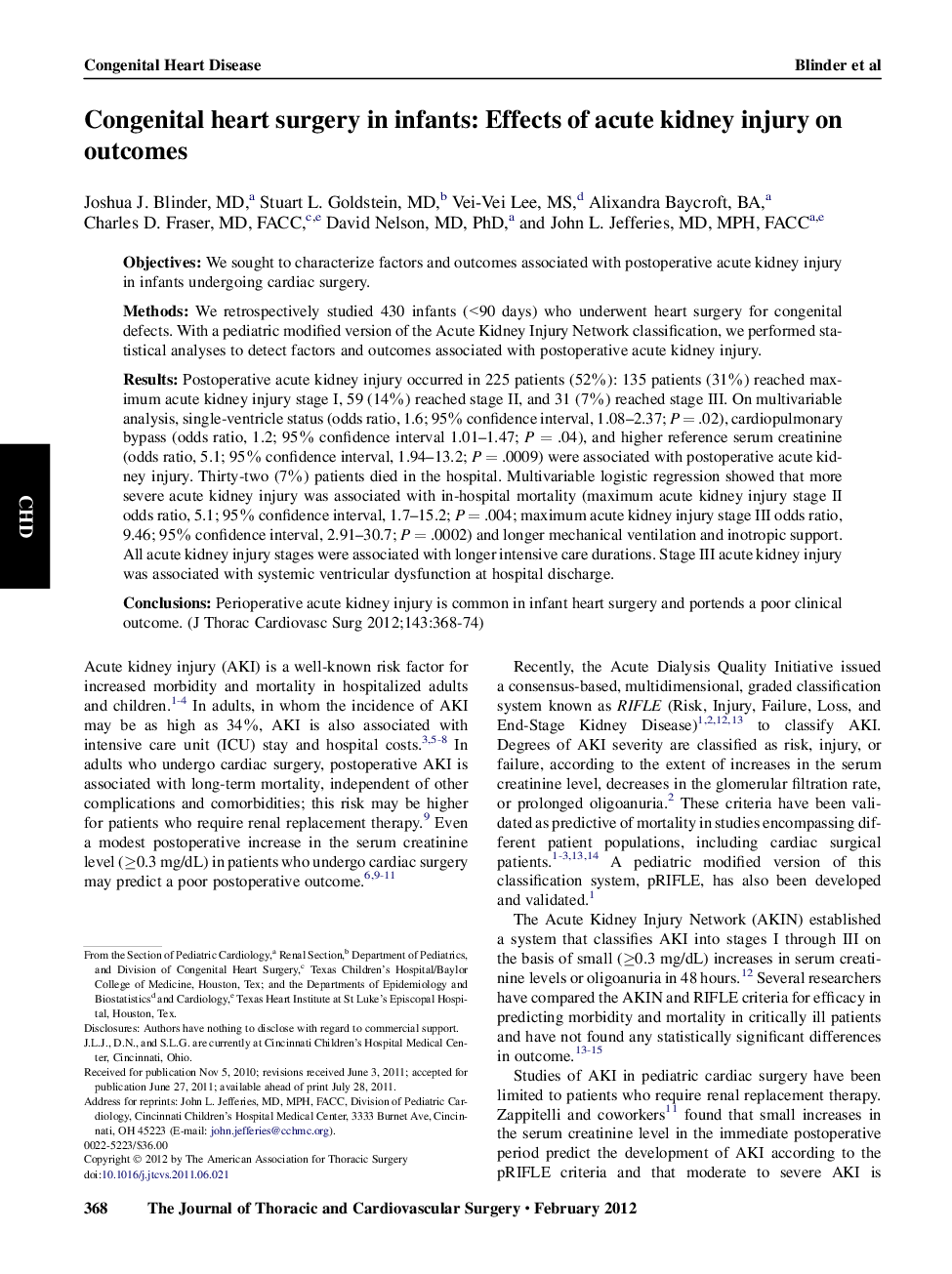| Article ID | Journal | Published Year | Pages | File Type |
|---|---|---|---|---|
| 2981454 | The Journal of Thoracic and Cardiovascular Surgery | 2012 | 7 Pages |
ObjectivesWe sought to characterize factors and outcomes associated with postoperative acute kidney injury in infants undergoing cardiac surgery.MethodsWe retrospectively studied 430 infants (<90 days) who underwent heart surgery for congenital defects. With a pediatric modified version of the Acute Kidney Injury Network classification, we performed statistical analyses to detect factors and outcomes associated with postoperative acute kidney injury.ResultsPostoperative acute kidney injury occurred in 225 patients (52%): 135 patients (31%) reached maximum acute kidney injury stage I, 59 (14%) reached stage II, and 31 (7%) reached stage III. On multivariable analysis, single-ventricle status (odds ratio, 1.6; 95% confidence interval, 1.08–2.37; P = .02), cardiopulmonary bypass (odds ratio, 1.2; 95% confidence interval 1.01–1.47; P = .04), and higher reference serum creatinine (odds ratio, 5.1; 95% confidence interval, 1.94–13.2; P = .0009) were associated with postoperative acute kidney injury. Thirty-two (7%) patients died in the hospital. Multivariable logistic regression showed that more severe acute kidney injury was associated with in-hospital mortality (maximum acute kidney injury stage II odds ratio, 5.1; 95% confidence interval, 1.7–15.2; P = .004; maximum acute kidney injury stage III odds ratio, 9.46; 95% confidence interval, 2.91–30.7; P = .0002) and longer mechanical ventilation and inotropic support. All acute kidney injury stages were associated with longer intensive care durations. Stage III acute kidney injury was associated with systemic ventricular dysfunction at hospital discharge.ConclusionsPerioperative acute kidney injury is common in infant heart surgery and portends a poor clinical outcome.
